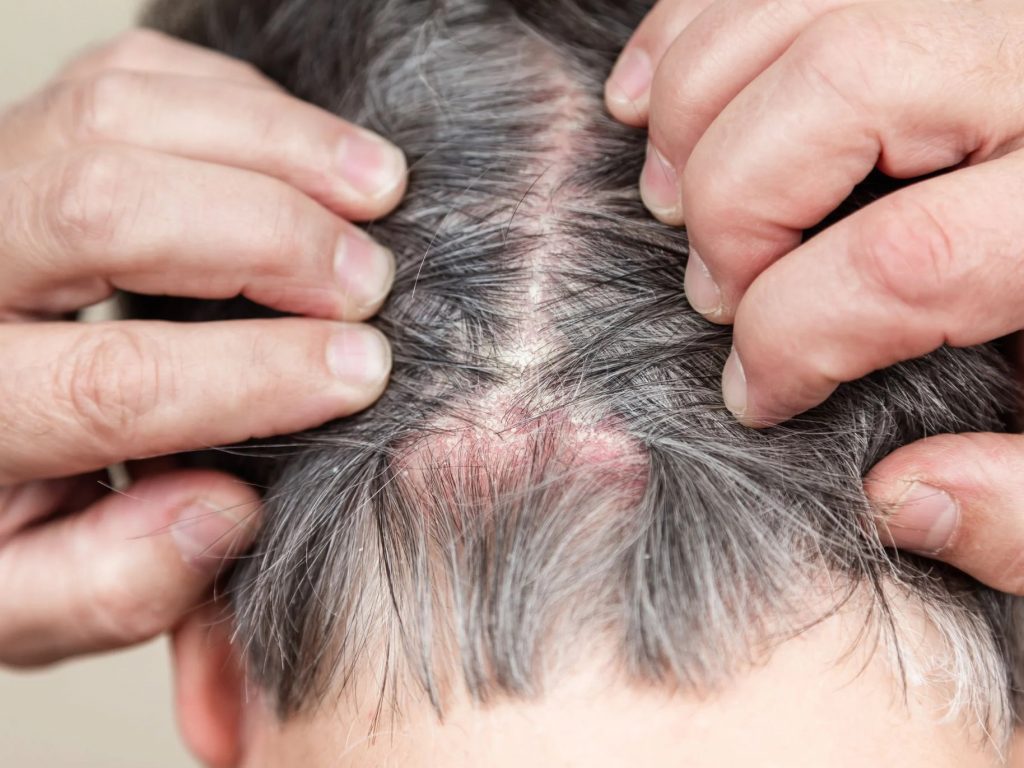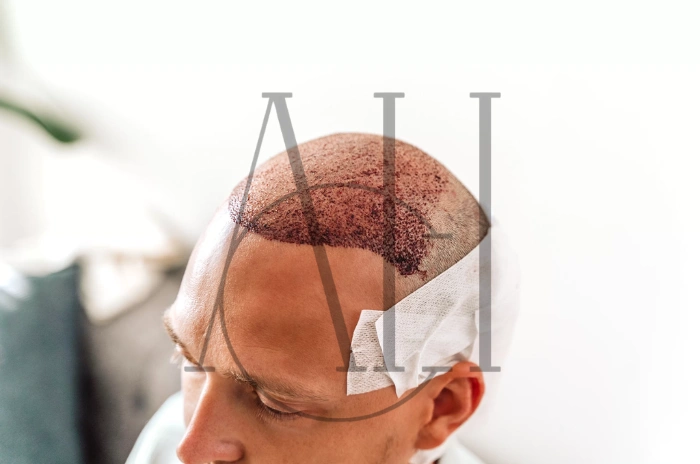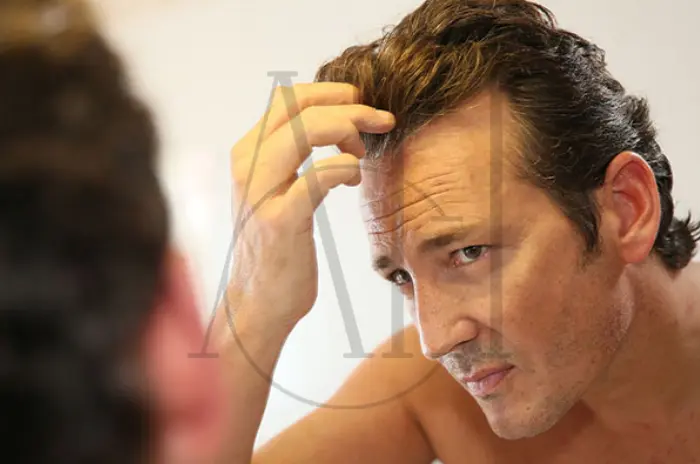Itchy scalp and hair loss often occur together, leading to discomfort and concern. Many individuals notice increased hair shedding symptoms when they experience persistent itching. This article explores the various causes, underlying links, and effective treatments available for managing both conditions simultaneously. Many people overlook how closely these symptoms are connected. Understanding the triggers and how they interact is crucial for restoring both scalp health and hair density.
Table of Contents
ToggleUnderstanding Itchy Scalp and Hair Loss
Why dryness causes itch
Dryness strips the scalp of its natural oils, leading to tightness and itchiness. When the scalp becomes dehydrated, it becomes more prone to irritation and flaking. This can eventually damage the hair follicles if not addressed early.
How dandruff contributes
Dandruff and hair loss itchy scalp are commonly linked, especially when flakes cause people to scratch excessively. Dandruff results from an overgrowth of yeast on the scalp, leading to inflammation. Constant scratching due to dandruff can weaken hair roots.
Role of infections
Fungal scalp infection like ringworm scalp hair loss can cause patchy hair loss and intense itching. These infections often lead to inflammation, resulting in damaged follicles. Treatment typically involves antifungal medications and medicated shampoos.
How Itchy Scalp Leads to Hair Loss
Scratching damages hair roots
Continuous scratching damages the hair shaft and follicle structure. This trauma can lead to hair shedding symptoms or permanent hair loss over time. The mechanical friction weakens the follicles’ grip on the hair.
Inflammation disrupts growth
Scalp inflammation hair affects blood flow and disrupts the hair growth cycle. Inflammatory conditions like folliculitis hair loss can block follicles, preventing regrowth. Addressing the inflammation is key to restoring healthy hair.
Why Does My Scalp Itch and Hair Fall Out?
Inflammation harms hair growth
Inflammation signals an immune response that can damage follicle cells. Conditions like alopecia areata itch involve autoimmune reactions targeting the scalp. Chronic inflammation weakens hair structure and delays regrowth.
Scratching damages follicles
Repeated scratching not only causes wounds but also stresses follicles. This can lead to dry scalp cause hair shedding and scarring alopecia. Managing the urge to scratch is crucial in treatment.
Bacteria, fungus & sebum build-up
Bacteria, Malassezia scalp irritation, and clogged sebum can trigger infection and itching. These buildups create an unhealthy scalp environment. Over time, they can suffocate follicles and cause miniaturization.
Hormone changes also play a role
Fluctuating hormones can increase scalp sensitivity and oil production. This often contributes to itchy scalp and hair loss during pregnancy or menopause. Hormonal imbalance may also exacerbate conditions like seborrheic dermatitis.
Why Does Scalp Itch When Hair Falls Out?
Micro-inflammation around follicles
When hair begins to fall, the follicular area often becomes irritated. This triggers scalp inflammation prevention mechanisms and causes localized itching. It is a sign that the scalp is under stress.
Hormonal impact
Hormones affect sebum production and immune response. In both men and women, changes in hormones may provoke itchy flaky scalp and hair loss. Endocrine imbalances often precede visible symptoms.
The Link Between Itchy Scalp and Hair Loss
Shared causes
Conditions like seborrhoeic dermatitis hair thinning and psoriasis involve both itching and hair loss. Many causes overlap, such as immune disorders, stress, or infections. Identifying these links is essential for targeted treatment.
How scratching affects hair
Frequent scratching physically pulls hair from follicles. This mechanical damage accelerates hair loss in areas with weak follicles. It can also result in follicle infection or scarring.
When itch comes first
In many cases, itchy scalp appears before visible hair loss. The itching is a warning sign of an underlying issue. Early intervention can prevent further follicular damage.
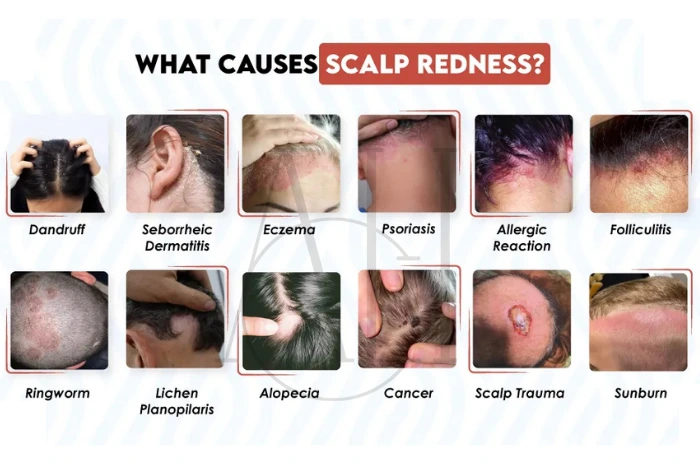
Common Causes of Itchy Scalp and Hair Loss
Dandruff and yeast
Dandruff and hair loss itchy scalp are linked through overgrowth of Malassezia yeast. This causes flakes, irritation, and inflammation. Treating the yeast can improve both symptoms.
Scalp psoriasis
This autoimmune condition creates thick, scaly patches on the scalp. It is intensely itchy and often leads to psoriasis hair thinning. Topical treatments and UV therapy are common solutions.
Alopecia areata
Alopecia areata itch involves sudden patchy hair loss due to immune attack on follicles. Itching usually precedes the loss. Treatment includes corticosteroids or immunotherapy.
Ringworm (Tinea capitis)
A contagious fungal infection, ringworm scalp hair loss causes round, itchy bald spots. It is more common in children. Oral antifungals are typically needed.
Allergic reactions
Hair dyes, shampoos, or styling products may trigger allergic contact dermatitis. Symptoms include itching, burning, and hair loss symptoms. Discontinuing the product often resolves the issue.
Folliculitis
Folliculitis hair loss occurs when follicles become inflamed or infected. It leads to painful, itchy pustules. Severe cases may result in scarring alopecia.
Lichen planopilaris
This rare inflammatory scalp condition leads to scarring and itchy scalp and hair loss. It mostly affects middle-aged women. Early treatment is crucial to limit permanent loss.
Atopic dermatitis
Common in people with eczema, this condition causes itchy, inflamed skin. On the scalp, it may result in scaling and eczema scalp hair loss. Hydrating treatments and steroids are beneficial.
Table: Common Causes of Itchy Scalp and Hair Loss
| Cause | Itching Severity | Treatment Type |
|---|---|---|
| Dandruff (Seborrheic Dermatitis) | Moderate to Severe | Anti-fungal shampoo, corticosteroids |
| Scalp Psoriasis | Severe | Topical steroids, UV therapy |
| Alopecia Areata | Mild to Moderate | Steroids, immune modulators |
| Ringworm (Tinea Capitis) | Severe | Oral anti-fungals |
| Allergic Reactions | Moderate | Antihistamines, avoid allergen |
| Folliculitis | Severe | Antibiotics, antiseptics |
| Lichen Planopilaris | Severe | Immune suppressants |
| Atopic Dermatitis | Moderate | Steroids, moisturizers |
Getting the Right Diagnosis
Importance of medical exam
Seeing a dermatologist itchy scalp specialist helps pinpoint the exact cause. They can visually assess scaling, lesions, or hair density changes. Accurate diagnosis prevents unnecessary treatments.
Medical tests your doctor might use
Tests like scalp biopsy hair loss, fungal cultures, or dermatoscopy may be needed. These help distinguish between fungal, autoimmune, or allergic causes. Blood tests may also assess hormone or nutrient deficiencies.
How to Treat Itchy Scalp and Hair Loss
Treat the root cause first
Successful treatment depends on solving the underlying problem. For example, fungal scalp infection needs antifungal agents, not just soothing oils. Personalized care plans offer better results.
Medical & topical therapies
Medicated shampoo itchy scalp, corticosteroids, or immune-modulators are often prescribed. For severe inflammation, oral medications may be needed. Your treatment plan depends on the diagnosis.
Home remedies and hair care
Coconut oil for itchy scalp can soothe dryness and reduce yeast. Avoid scratching and use a soft brush. Tea tree oil scalp care offers antimicrobial benefits.
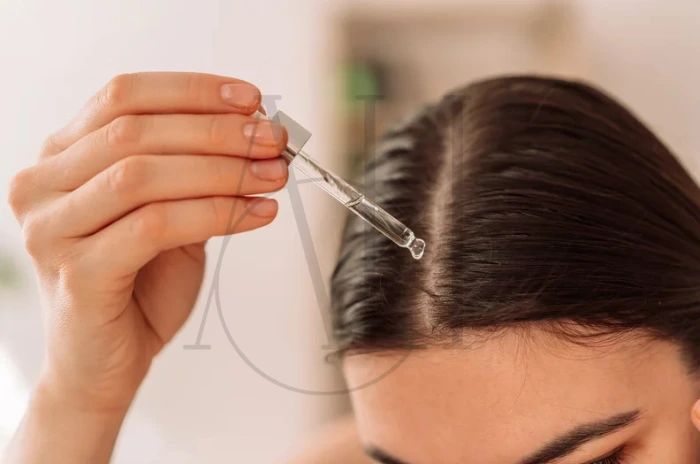
Medical Treatments
Anti‑inflammatory drugs
Steroids or non-steroidal drugs reduce scalp inflammation hair effectively. They help relieve itching and protect follicles. These are especially helpful in autoimmune conditions.
Anti‑fungal treatments
Antifungal shampoos and oral medications treat infections like ringworm scalp hair loss. Common ingredients include ketoconazole or ciclopirox. Consistent use is key to success.
Immune treatments
Autoimmune conditions like alopecia areata itch require immune-modulating drugs. These may include corticosteroids, methotrexate, or JAK inhibitors. They aim to stop immune attacks on follicles.
Hair regrowth options
After inflammation resolves, treatments like minoxidil or PRP therapy can stimulate hair growth. In some cases, hair transplant itchy scalp patients need anti-itch therapy post-op. Microneedling also helps rejuvenate follicles.
Home and Natural Care
Healthy diet
A healthy diet scalp hair rich in omega-3, zinc, and biotin supports scalp health. Deficiencies can worsen both itching and hair loss. Stay hydrated and consume leafy greens, nuts, and fish.
Shampoos for flakes
Use gentle, medicated shampoo itchy scalp with ingredients like salicylic acid, selenium sulfide, or coal tar. Avoid harsh sulfates. Rotate products based on symptoms.
Essential oils
Tea tree oil scalp care, lavender oil, and rosemary oil can reduce microbial growth. These oils calm itching and stimulate circulation. Always dilute before application.
Scalp massage
Scalp massage for hair growth improves blood flow and reduces tension. Daily massage with oil may also exfoliate dead skin. It’s a relaxing, natural remedy.
Vegetable masks
DIY masks using cucumber, aloe vera, or avocado can hydrate the scalp. These offer antioxidant benefits and reduce itchy scalp seborrhoeic dermatitis. Apply weekly for best results.
Summary and When to See a Doctor
Key takeaways
Persistent itchy scalp and hair loss are not normal and usually indicate an underlying condition. Early treatment prevents scarring and improves regrowth. A healthy scalp is essential for healthy hair.
Prompt treatment helps
Don’t ignore long-term symptoms like flakes, burning, or redness. These signs can escalate to permanent hair loss. Consulting a specialist ensures proper care.
Tips to Prevent Itch and Hair Loss
Don’t scratch
Scratching worsens scalp inflammation hair and can cause follicle trauma. Try cold compresses or anti-itch lotions instead. Keep nails short to avoid damage.
Use gentle products
Choose fragrance-free, hypoallergenic shampoos. Limit styling with heat or harsh chemicals. Opt for soothing itchy scalp treatments regularly.
Support scalp health
Maintain a balanced diet and hydration. Consider omega 3 for scalp health. Avoid tight hairstyles and ensure proper hygiene.
What Hair Transplant Surgery Involves
Types of transplants
Modern methods include FUE DHI post-transplant care, offering natural results. They involve transplanting healthy follicles to thinning areas. Both methods require post-op scalp care to reduce itching.
Post-surgery scalp care
Hair transplant itchy scalp is common during healing. Use prescribed sprays and avoid scratching. Anti-itch solutions and loose headwear help reduce irritation.
When to See a Doctor
Broken skin or infection signs
If you notice pus, pain, or crusting, see a dermatologist itchy scalp expert immediately. These signs suggest infection or severe inflammation. Delay can lead to permanent damage.
Persistent or severe symptoms
Ongoing itchy scalp and hair loss longer than 2 weeks needs medical attention. Unresponsive cases may require tests or biopsies. Don’t wait for visible bald spots to appear.
How Doctors Diagnose Itchy Scalp
Symptom review and scalp exam
Doctors examine flaking, lesions, and hair patterns. They assess for signs of infection, allergy, or autoimmune disease. Early clues aid faster diagnosis.
Lab tests if needed
Tests like cultures or scalp biopsy hair loss may confirm fungal or inflammatory causes. Blood work can detect nutrient deficiencies or hormone imbalances. These results guide the treatment plan.
FAQ for Itchy Scalp and Hair Loss Causes Links and Effective Treatments
What is the connection between an itchy scalp and hair loss?
The two often share causes like inflammation, infections, or allergies. Scratching due to itchiness can physically damage hair follicles.
Why does scratching an itchy scalp contribute to hair loss?
Scratching creates trauma on the scalp surface and follicle level. This damages the follicles, leading to weaker hair and shedding.
What are the most common causes of an itchy scalp accompanied by hair loss?
Common causes include dandruff, seborrheic dermatitis, fungal infections, and autoimmune diseases.
How do doctors diagnose the cause of an itchy scalp and hair loss?
They review symptoms, examine the scalp, and may conduct lab tests. A scalp biopsy hair loss test can reveal autoimmune or fungal issues.
What are the primary treatment approaches for an itchy scalp and hair loss?
Treatments vary by cause but include antifungals, steroids, and medicated shampoos. Natural remedies like oils and massages can also help.
Are there any home remedies or natural tips that can help with an itchy scalp and hair loss?
Yes, coconut oil, tea tree oil, and aloe vera masks are soothing. Regular scalp massage and a healthy diet scalp hair are beneficial.
When should I seek professional medical help for an itchy scalp and hair loss?
If symptoms persist for more than two weeks or worsen, see a dermatologist itchy scalp specialist. Also seek help if you notice infection signs or sudden bald patches.
Can hair loss caused by an itchy scalp be reversed?
In many cases, yes—especially if the underlying cause is treatable. Early intervention with appropriate therapy can promote regrowth. However, long-term inflammation may cause scarring, which is irreversible.

